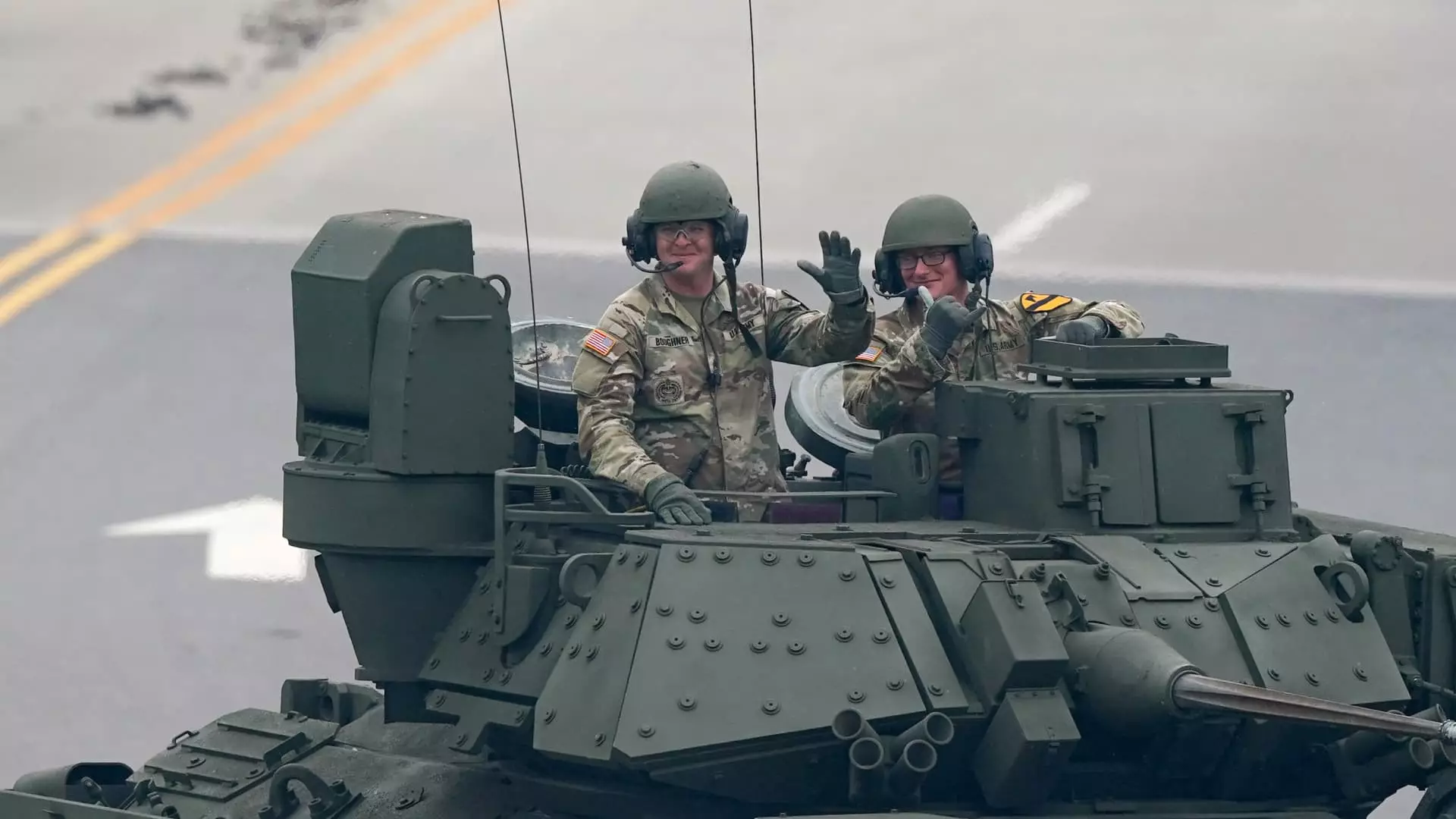As world leaders converge at the NATO summit in The Hague, a troubling trend emerges from the haze of political maneuvering: the decision among 31 member states to raise their defense spending to an ambitious 5% of GDP. While rhetoric at such gatherings typically envelops the attendees in a cloak of unity and purpose, behind the veneer lies a goading reality that can only be described as alarming. The audacity of escalating military expenditures at a time when global challenges require concerted diplomatic efforts raises questions about the direction of international relations. Are we truly facing unspeakable threats that necessitate such drastic commitments, or are we witnessing a reckless response fueled by an outmoded notion of national security?
A Surge in Defense Stocks: The Market’s Disturbing Cheer
In the wake of the NATO summit’s announcements, European defense stocks, oddly, have rallied with vigor—up nearly 50% year-to-date and currently boasting hefty jumps for firms like Babcock International and Renk. One cannot help but wonder who exactly benefits from this military-industrial boom. Companies thrive, basking in financial gains, but at what cost to society? This sentiment isn’t merely about observing market trends; it’s about grappling with the profound implications of an economy that anchors itself to war and weaponry. The optimism reflected in the stock market isn’t just misplaced—it’s a signal that we’re gearing toward an era where profit margins and defense contracts outweigh the value of human life and global peace.
Political Dynamics: The Illusion of Stability
The underlying cause for this fervor in military spending comes coupled with political instability in other parts of the world, specifically concerning ongoing tensions in the Middle East. The fragile ceasefire between Israel and Iran has provided a temporary lull in hostilities, yet it’s troubling to consider how quickly the underlying tensions could erupt once again. Despite this, the prevailing sentiment among leaders seems to be a reliance on increased military capabilities rather than intelligent diplomacy or conflict resolution. U.S. Federal Reserve Chair Jerome Powell’s remarks about inflation and economic stability, while crucial, miss the broader point: how can a stable economy thrive under the specter of militarization that prioritizes arms over aid?
The Economic Burden: A Detriment to Society
Pouring more and more money into defense budgets is a troubling proposition, especially when the cost-benefit ratio is often skewed by lobbyists positioned in plush offices far removed from the realities of everyday citizens. The decision to increase military expenditure would inevitably siphon funds from critical social programs like healthcare and education, pressing yet essential sectors that could otherwise foster human potential and societal resilience. As elections loom and constituents discuss bread-and-butter issues, it seems the political conversation rarely includes the pressing need for a reevaluation of budget priorities. Is it right to sacrifice the social fabric for military advancements that offer a dubious promise of safety?
The Influence of Political Leadership: A Reflection of Democratic Ethics
The whispers of political interests echo throughout The Hague, reaching into the roots of democracy as leaders announce their intent to augment defense budgets. However, the question remains: who are these leaders truly accountable to? The people they serve or the profits they represent? It’s an uncomfortable realization, but embracing a military-first ideology can easily become a slippery slope into a state of perpetual conflict—one that could ensnare not just Europe, but the world at large. For those of us aligned with a center-wing liberal outlook, championing diplomacy alongside solidarity among nations holds more promise than the grim predictability of militarization.
The NATO summit, while ostensibly about defense, reflects a deeper moral malaise—instead of moving towards peace and prosperity, we risk entrenching ourselves further in a quagmire of militaristic aspirations. The rhetoric surrounding free markets and military expansion masks a dangerous interpolation of human priorities—rendering not just citizens, but democratic values vulnerable under the guise of security. What a paradox it is to preach peace while simultaneously fanning the flames of conflict. The stakes have never been higher, and it’s a clarion call for introspection and reform before it’s too late.


Leave a Reply